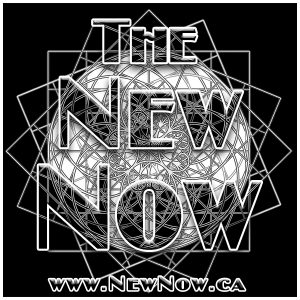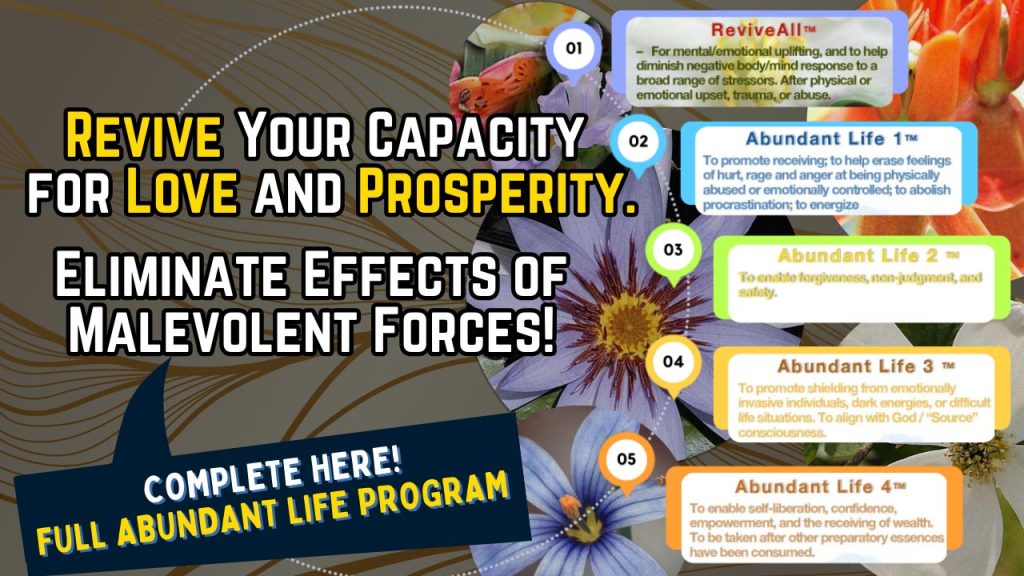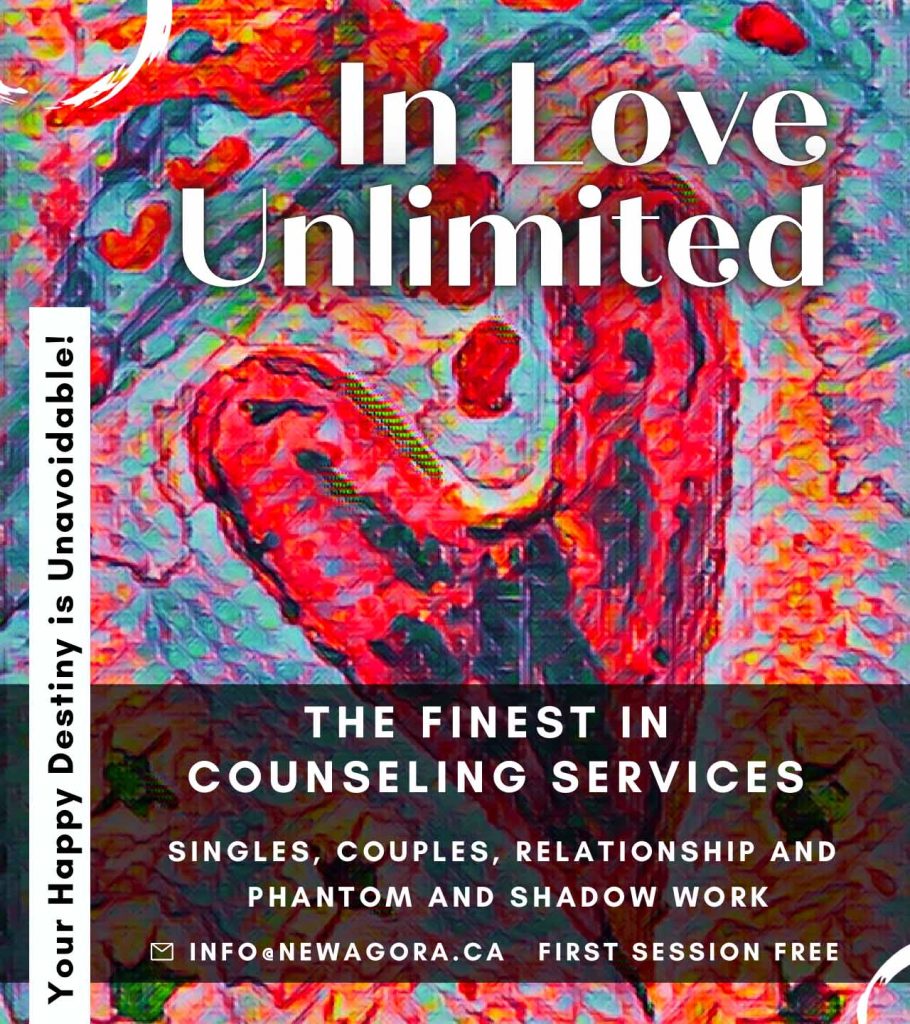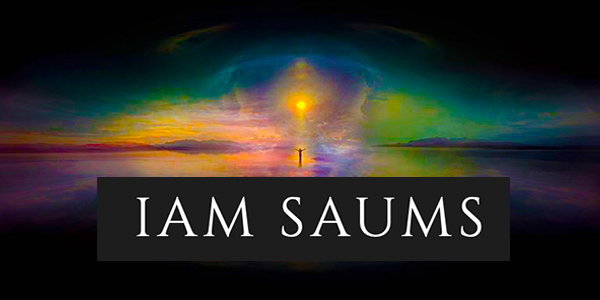Transcendence Through Intuitive Thinking
In this article I will be discussing the philosophical system used to derive the content of my website, the nature of proof, and the importance of intuitive thinking as an effective method of truth analysis. Hopefully this will round out your understanding of what it means to be a truth seeker and satisfy anyone wondering how I derive my material.
The Binary Fallacy and the Misappropriation of Intellect
The intellect is overrated and underrated because few understand its true purpose. In truth the intellect is a passive tool that evolves a given input towards an output according to certain rules and takes a premise toward its logical conclusion. But like a computer it passively carries out its programmed function without true creativity of its own. What the intellect produces depends on two things, its input and programming, both of which originate from outside itself and are therefore unguarded sources of corruption. As the saying goes, garbage in garbage out: with a corrupted input comes corrupted output. And even with perfect input, if the rules are incomplete or sloppily applied then the output is likewise garbled. So for all its virtues, the intellect alone is insufficient for effective truth seeking.
The problem with overrating the intellect comes from thinking that through accurate application of the rules one can produce an accurate output, which ignores the possibility of incomplete or false input. In practical terms this implies that intellectuals, or let’s say stubborn skeptics who pride themselves on scientific objectivity, refuse to question the root assumption from which they are logically reasoning. These root assumptions originate with statements made by potentially fallible sources of external authority like group consensus, prolific academics, university curriculums, and irrational biases rooted in financial and social survival that embed themselves into institutional policies. When confronted with truths that contradict these, rather than revise incomplete or false assumptions, intellectuals use them to rationalize away counter-examples and counter-reasoning, thereby misappropriating the intellect into fortifying the walls of their mental prison.
Those who notice the limiting nature of intellectualism might make the counterpart fallacy of under rating it. They wish to transcend reason by disposing it in favor of the only alternative, feeling. Feeling does not obey logic, therefore it can go beyond logic. While that much is true, the error comes in not distinguishing between intuition (flowing from our higher aspects) and emotionalism rooted in lower aspects like animal instinct, ego biases, sentimentality, subconscious programming, collective consciousness, or external telepathic persuasion. This attempt to abandon intellect instead gives it a new job by merely switching the inputs and removing the need for consistency in applying the rules. What results is an intellect that rationalizes subjective impulses in ways that are not even logically consistent.
What underrating and overrating the intellect have in common is that they arise from the binary fallacy: “If not 1, then 0. Since 2 is not 1, 2 is 0.” Above reason is intuition, below reason is emotionalism, and through the binary fallacy intuition and emotionalism become indistinguishable because neither is based in reason. Meanwhile, those who overrate the intellect also commit the binary fallacy by confusing what is beyond their comprehension with what is beneath their standards of logical integrity, rejecting both for being different and unsubstantiated by their own understanding. These are two sides of ignorance, two manifestations of the intellect being unable to accommodate solely those inputs that would lead it toward higher objectivity. Either it stubbornly rationalizes its current level of objectivity against higher levels of objectivity beyond its understanding, or else it rationalizes away objectivity altogether in favor of subjectivity.
The binary fallacy therefore boils down to recognizing only objectivity and subjectivity, choosing between solely these when there exists a third option that transcends both. For lack of a better term, we may call this third option transjectivity, meaning that which is trans-objective. This is what I meant earlier by “higher levels of objectivity.”
Degrees and Levels of Objectivity
How can there be different levels of objectivity? Science aims toward increasing degrees of objectivity, toward increasingly accurate understanding reality, whereas by different levels of objectivity I am referring to different levels of reality, not just the level we know as physicality. The problem with the term objective is that it implies “that which is real” when what we call reality is actually a localized phenomenon whose characteristics depend on what locations you span within the greater framework of existence. It depends on the level within that framework that forms the foundation of your current realm of experience. So there is an important distinction between degrees and levels of objectivity. Gaining a higher degree of objectivity means getting a more accurate understanding of what level of reality you are currently exploring, whereas gaining a higher level of objectivity means gaining an accurate understanding of an altogether higher level of reality. This matters because while logic alone can bring you to higher degrees, intuition is needed to reach higher levels.
The Limitations of Scientific Proof
When it comes to scientific research and proof, exploration is into phenomena that carry a factual existence independent of the observer, quarantining it from psychological bias and delusion. But by limiting proof to what is universally replicable, what remains are solely those phenomena comprising the lowest common denominator of experiences available to all observers inhabiting a consensual reality. In other words, scientific proof is strictly material proof that depends in no way upon the individualized conscious or spiritual state of the observer. Thus scientific proof encompasses the crudest set of phenomena that are undeniably real to individuals with even the crudest levels of conscious development.
Scientific standards do not allow for personal proof that depends on the observer, and yet it is precisely the conscious development of the observer that determines what other levels of reality beyond the purely physical and deterministic can be accessed. The closest science has come is in quantum mechanics where it is now commonly accepted that the observer plays a unique role in the outcome of an experiment. But beyond verification of the statistical trends describing the distribution of all possible observations in a given experiment, any particular outcome is not universally replicable. That is why quantum physics, in not being able to predict any specific observations, must resort to statistical descriptions because in doing so it once again approaches collectivity and thus what it defines as objectivity. Even so, the exact influence of the observer on a quantum system is not understood, and thought to be random as well as being limited solely to the atomic scale.
That’s as far as modern science goes. Yet seasoned researchers of fringe knowledge and battle-hardened experiencers of the strange know that transjective phenomena also operate on the macroscopic scale and depend on the quality of consciousness and spiritual orientation of the observer. Synchronicities and the correlation between attitude and attracted experiences are some examples. We are not just observers of reality, but active participants endowed with freewill to choose to transcend our realms by going above and beyond our prior assumptions. Inexplicable events happen, and we can either rationalize it away with assumptions and rules programmed according to our collective mainstream reality, or we can figure it out within ourselves and leave the herd in the dust.
Accessing Transjective Proof
Levels of objectivity are arranged concentrically like small circles inside larger ones, with the lower levels being subsets of the higher. The smallest circle is physicality, the most illusory level of reality, while the largest circle is one “whose center is everywhere and circumference is nowhere” because it is absolute and infinite. Relative to the absolute, observations and truths are but assumptions and half-truths. It is only within a particular level of objectivity that the assumptions and half-truths defining that level become objective observations and truths for its inhabitants.
Once you access a higher level of reality, proof within it becomes fully objective to you, but that proof cannot be gathered by someone who lacks access to that level. Your personal proof would at best represent for him a possible transjective truth because it supersedes what he considers objective. But he might commit the binary fallacy in mistaking it for mere subjectivity on your part because he cannot replicate or substantiate it with his current knowledge or methods of investigation. Considering that each of us are in the same position with respect to transjective truths from levels of reality higher than our own, it is necessary to employ a method of truth analysis that can guard against subjectivity without simultaneously eliminating access to transjective truths. That method requires a certain amount of mental and intuitive finesse to understand and apply, but it will be explained fully in the proceeding discussion about the nature and place of logic and intuition.
Logic alone is enough to increase the degree of objectivity because old assumptions are merely being taken toward increasingly intricate logical conclusions. Then progress is made into unexplored rather than unfathomable territories, and what increases is the refinement rather than evolution of knowledge. This is drawing a circle and pouring effort into exploring the bounded territory rather than widening the circle itself. As soon as the perimeter is drawn, everything within is already delineated. This forms the enclosed set from which any further discoveries are made, meaning such discoveries are far from new; they instead follow directly and predictably from the old. The process is deterministic, that is to say, the old directly determines the new. Those who cling solely to this objective approach are fortifying their ignorance when they stubbornly seek to justify existing assumptions and observations rather than revolutionize them with more expansive ones.
We must transcend the delusion of subjectivity and the ignorance of objectivity. To be subjective means to deny the reality of the level you are inhabiting. To be objective means to fully acknowledge and understand the reality of your level but go no further. To be transjective means to shift to a higher level of objectivity altogether, one that forms a superset of the old level. If sound logic and sharp observation is needed to overcome subjectivity and reach objectivity, then those two plus the additional faculty of intuition is needed to overcome objectivity and reach transjectivity, to break through the barrier of previously limiting assumptions.
Logic and Intuition
The road to transcendence is traveled via intuitive thinking, which may also be called nonlinear or nondeterministic thinking. Whereas deterministic thinking proceeds from the old to generate the new, meaning the new is just an extension of the old and therefore not new at all, intuitive thinking allows one to feel out the new and revise the old so that previous assumptions are overturned to become extensions of the new. Intuitive thinking is therefore the only way to reliably come up with anything truly new because it gives you newfound vision.
What is intuition? The common understanding likens it to instinct or internalized knowledge that can be used to achieve correct results without having to think. A familiar example would be software or electronic devices said to have an intuitive interface; what that really implies is that the interface makes use of pre-programmed mechanical tendencies so that the user does not have to learn or think to make it work. But that is just another form of determinism, albeit one that does not necessitate logical thinking, just programmed reaction whether the programming is academic, social, or biological. Nothing new is done or discovered this way, it is all about accessing new forms of the old without active application of the intellect. The only similarity between real intuition and this common misunderstanding is that both achieve correct results without initial involvement of the intellect.
No, real intuition does what the intellect alone cannot: sense truths that do not follow directly from the old assumptions, old logic, or old programming. Truths accessed by intuition are therefore transjective. Intuition can point you to flaws in prior assumptions, help you notice new observations that were otherwise missed, and present new possibilities to contemplate.
Real intuition comes from beyond. Whatever determines your current realm, your current body of assumptions and programming — intuition originates from beyond that. If you are a product of the past, intuition is a feedback flow from the future. If you are the lower self, intuition comes from the higher self. If you are operating from the five senses, intuition comes through the sixth. So it is an influence that comes from beyond, that beckons you beyond, versus influences that come from the lower self, the collective physical reality, and genetic programming that solicit you into rationalizing away the new for being unsupported by the old. Intuition is your internal compass magnetized to absolute truth, that if followed takes you through ever greater levels of objectivity and thus through ever more advanced realms of existence. It is the thread that leads you out from the maze of illusions, it is the heart of your soul, the voice of your spirit, and it only speaks as clearly as you have ears to hear and the mind to listen.
With intuitive thinking, intuition is the guiding hand of logic. Logic alone is incapable of determining the absolute value of anything because it deals in binaries and the relation between them: premise versus conclusion, subject versus object, congruent versus divergent, rational versus irrational, or cause versus effect. But what decides the premise? What determines the first cause? Who decides what is rational? What determines objective truth? Not the intellect; it only acknowledges and obeys them after they have already come into existence. Intellect takes what it is given and follows through with it. In the absence of intuition, it takes orders from group consensus or physical signals, hence the “nature versus nurture” debate, which is another binary fallacy that fails to include the transjective possibility of spiritual factors. Logic without intuition puts intellect in the business of reinforcing biases rather than uprooting them.
On the other hand, intuition without logic leads to vague impressions that never become accurate expressions or communicable understanding. The intellect is also necessary to avoid confusing intuition with emotionalism; the latter being subjective, its commands will have holes, self-contradictions, discoverable motives that are less than reasonable, and consequences that you can already foresee would be unpleasant. As mentioned, those who discard the intellect have no means to distinguish between the two. They get caught up in a self-made world of illusion that is wholly at odds with the objective reality they reside within.
Intuition as an Absolute Gauge
But why exactly can intuition do what logic alone cannot? What exactly goes on when you intuitively sense whether an idea is true or false? In intuitive thinking, the truth value of an idea is felt directly rather than determined through its relation to other ideas. By turning within and consciously focusing on a thought, awareness of your surroundings momentarily fades away and the separation between you (subject) and the thought (object) disappears as well so that both overlap into a single entity: yourself-as-the-thought.
It is the same process that leads to empathy when you internally observe yourself-as-other. In empathy, you feel internally what another person feels, which is only possible if you set aside your separate self and your personal circumstances and step into their shoes and see them relative to themselves. With intuitive thinking, you step into a thought and feel it relative to itself, or rather you feel yourself-as-the-thought relative to yourself-as-absolute-truth. The core of your being, the source of your intuition as well as that which observes itself in the process of self-awareness, is your most reliable absolute truth reference point because you can absolutely verify the truth of your own existence by noticing yourself notice yourself. By stepping into a thought you can feel whether there is resonance or dissonance between yourself and the thought in question, thereby comparing the thought to not just another idea originating from outside yourself, but to an absolute truth anchored at the very core of your being. Its truth value can therefore be estimated by how much it resonates with your being. Then, in using your intellect to thoroughly investigate ideas that resonate, you asymptotically approach absolute truth by reaching ever higher levels of objectivity. Deep resonance indicates the presence of truth.
The Process of Intuitive Thinking
Intuitive thinking is only possible through deep contemplation. Stitching together a patchwork of other people’s ideas is not sufficient to move forward in a revolutionary way. If you really want to figure things out, take time to contemplate deeply. This involves focusing inward to become ever more sensitive to your intuition, ever more capable of discerning between genuine intuition and subjective bias. It also involves cranking up your intellect to follow through with the suggestions intuition provides, to look for holes and inconsistencies, to unravel an intuitive “thought ball” into words clear enough for others to understand. I recommend getting a blank notebook to brainstorm and work things out in a freestyle manner since putting ideas down on paper frees up the mind to tap into the next batch of intuitive impressions and allows an instant survey of progress.
Good intuition and good thinking leads to good truth analysis. If an idea feels off, then find out exactly why it feels off. If an idea feels right, then find out exactly why. You are not finished until you clearly understand the intuitive impression, have logically dissected it, and can convey it accurately in words. Doing so is a divine act because it gives clear voice to spirit. It is really an internal communion, a nonverbal socratic dialogue between the lower self and the higher Self. You turn within, pose the question, feel out the possibilities, investigate the results, correct misunderstandings, apply them, test them, revise them, learn from them, ask and receive, feel out and figure out, realize and transcend.
Intuition provides answers to questions after the intellect has dutifully exhausted a line of reasoning and humbly bows in request of assistance. Logic can only go so far before it hits an impasse, a discontinuity where what comes after cannot be logically deduced from what came before due to limitations in prior assumptions and observations. That is when intuition throws a rope from the other side, so that intellect can deduce what came before from contemplating what possibly comes after. It is a backwards process, but it works and is a perfect example of how intellect obeying intuition moves one toward a higher level of objectivity. After having made use of the rope, following through by logically analyzing and unraveling an intuitive impression is equivalent to building a solid bridge across the impasse so that in the end, what was formerly a discontinuity is now a continuous path that can be logically followed forwards or backwards. That is because higher levels of objectivity are supersets of lower levels, and to derive a superset from the subset is impossible while the reverse is more than natural.
After intuition results in an epiphany, everything you thought you knew realigns slightly so that the answer to a previously befuddling question becomes smack-your-forehead obvious. Intuitive thinking therefore leads to logically self-consistent results even if the intervening process momentarily abandons logic for intuition when encountering an impasse. Intuitive thinking can do everything that strict logical reasoning can, but unlike the latter it can also transcend itself. The condition is that you logically follow up on an intuitive impression, which may be nothing more than the most resonant and best-fitting guess, even if your current observations, experiences, and assumptions do not yet prove it directly. If your intuition is correct, then in following and testing it you will encounter new observations, new experiences, and revised assumptions that prove it. But this type of transjective confirmation must come after-the-fact. Since intuition comes from beyond, the proof of its validity is accessed by going beyond.
And that is the true scientific method, where a hypothesis is proposed first and then tested. Too many scientists and skeptics irrationally reject “far out” hypotheses before investigating them solely because these “wild assertions” are not yet supported by prevailing assumptions. They are afraid to take a single step without the certainty of group consensus and the absolute confirmation of all prior steps, and so they are barred from accessing higher levels of objectivity and instead rationalize away transjective influences. Intuitive thinking is more scientific than modern science because it does not allow the scientific method to be restrained by limitations irrationally imposed by old assumptions. It is the way of the gnostic intellectual rather than the agnostic rationalist. Intuitive thinking is the true science of transcendence.
Further Reading
- Truth Analysis — a short article of mine detailing the practical steps I use to apply intuitive thinking toward figuring things out. It was written a couple years ago and only briefly touches on some concepts that were more fully explored in the current article.
- The Philosophy of Freedom (also published as Intuitive Thinking as a Spiritual Path) by Rudolf Steiner — this book gets to the core of intuitive thinking, freewill, and transcendence. Steiner wrote it in a manner meant to exercise both intuition and the intellect, thus it is very difficult to read and understand. I had an easier time figuring out these same concepts myself through intuitive thinking than deciphering them from the book, and only afterwards did I get what Steiner was talking about since I had already reasoned it out on my own. Still, it is a rewarding work for anyone looking for a mental and intuitive workout, and the concepts it covers have far-reaching implications.
- Greater Community Spirituality by Marshall Vian Summers — a more readable, comprehensive, spiritual, and practical approach to intuitive thinking. In this book, real intuition is termed Knowledge with a capital “K” and made the cornerstone of what amounts to a fourth density STO philosophical system where listening to the heart, the voice of spirit, is essential to making wise choices in the challenging times to come. The wisdom and advice given in this book is true to my experience, so I recommend it for all truth seekers.
2002-2022 montalk.net
Privacy Policy
– Come Like Us on Facebook – Check us out on Instagram –
– Sign Up for our Newsletter –


















